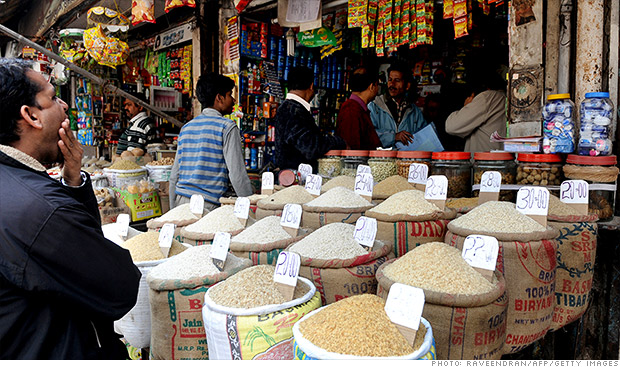
The rupee has dropped sharply versus the U.S. dollar, which means prices could soar in the import-reliant nation.
Policymakers are working to halt the rapid depreciation of their currencies by raising interest rates and tightening monetary policy. But that may risk slower economic growth in the years ahead and threaten to drag down the global economic recovery.
This week, Indonesia’s central bankers held an emergency meeting where they hiked interest rates to stop the sharp fall in the rupiah versus the U.S. dollar.
Central bankers in Brazil and India are also moving to prop up their currencies, with Brazil launching a surprise $60 billion program last week to halt the slide in the real.
These emerging market policymakers have been forced to react to anticipated changes by the Federal Reserve, which may begin cutting back on its bond buying program as soon as next month. Foreign money has drained out of emerging markets and moved back to the United States as investors prepare for an eventual tapering of the Fed’s quantitative easing.
The fall in emerging market currencies is especially worrying for countries that rely heavily on imported goods. In countries that import food and oil — often priced in U.S. dollars — basic necessities will become more expensive for the average person.


